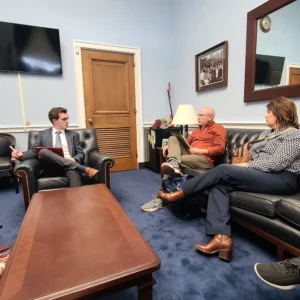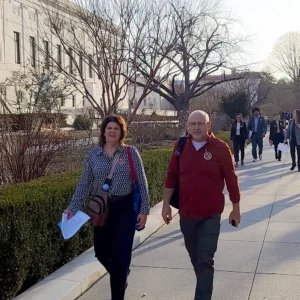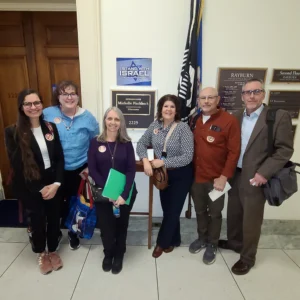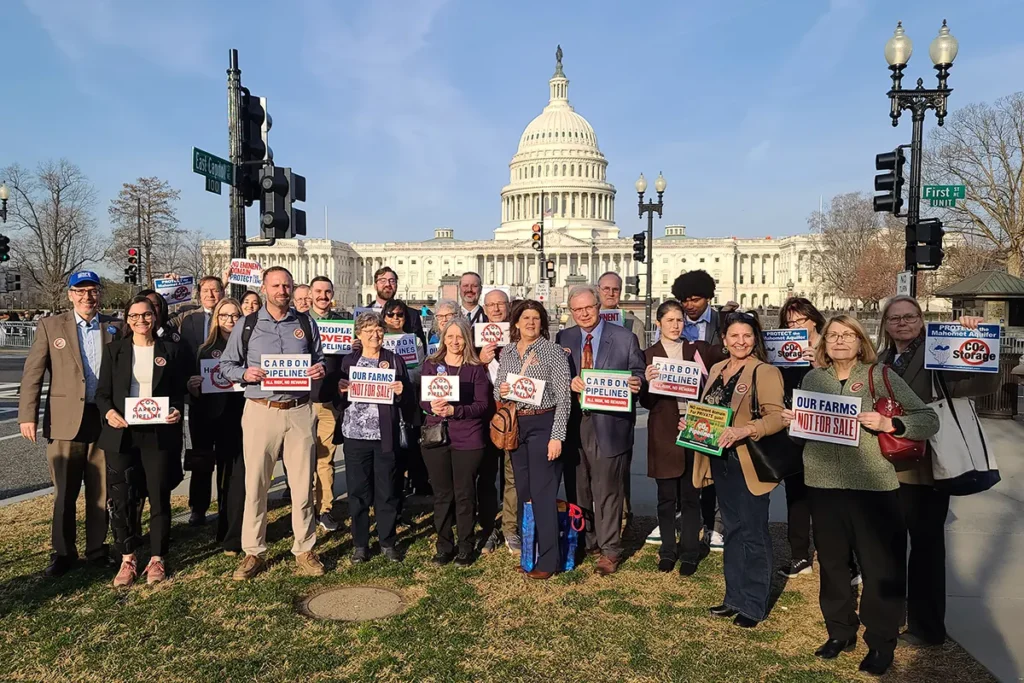
*99.9% of the tax credits are claimed by massive oil and gas interests.

Carbon capture is the most expensive, least effective climate mitigation strategy.

Last week, I traveled to the Capitol with a small but determined group of Minnesotans: landowners, farmers, and community members who are experiencing the threats posed by the carbon capture industry. We didn’t just come for a photo op; we came with a message for Congress: it’s time to end the reckless and wasteful tax breaks to the carbon capture industry.
The 45Q tax credit – a multi-billion-dollar handout to fossil fuel companies —has driven a surge of proposed carbon pipelines across rural America.* On paper, these projects promise climate solutions. In reality, they’re another way for big corporations to rake in public dollars from projects that put rural peoples’ land, water, and safety at risk.
Right now, Congress has a chance to put an end to it. A bipartisan bill (H.R. 1946) was recently introduced to repeal the 45Q tax credit, cutting off the financial incentives that drive these projects. This bill would not put an end to carbon capture by any means, but it would stop billions of public dollars from flowing to the oil and gas interests that benefit most.
Over our two days in D.C., we spoke with staff from several congressional offices, including Rep. Finstad, Rep. Fischbach, Sen. Klobuchar, Rep. Omar, and Sen. Smith. We talked about soil damage from pipeline construction and the use of carbon capture for enhanced oil recovery (EOR). We were surprised by how many staffers still believed that 45Q is essential for carbon reduction.
But we weren’t the only ones talking about carbon pipelines at the Capitol this past week. Fossil fuel and biofuel industry lobbyists were also out in force, pushing to preserve and expand 45Q.
The fight is far from over, but our message is clear: public money should not fund projects that endanger rural communities to line the pockets of Big Oil. If we need to cut waste, this is where we should start. We look to Congress to take action—starting with support for HR1946 to repeal this misguided tax credit.
Co-lead of the No Carbon Pipelines MN campaign


